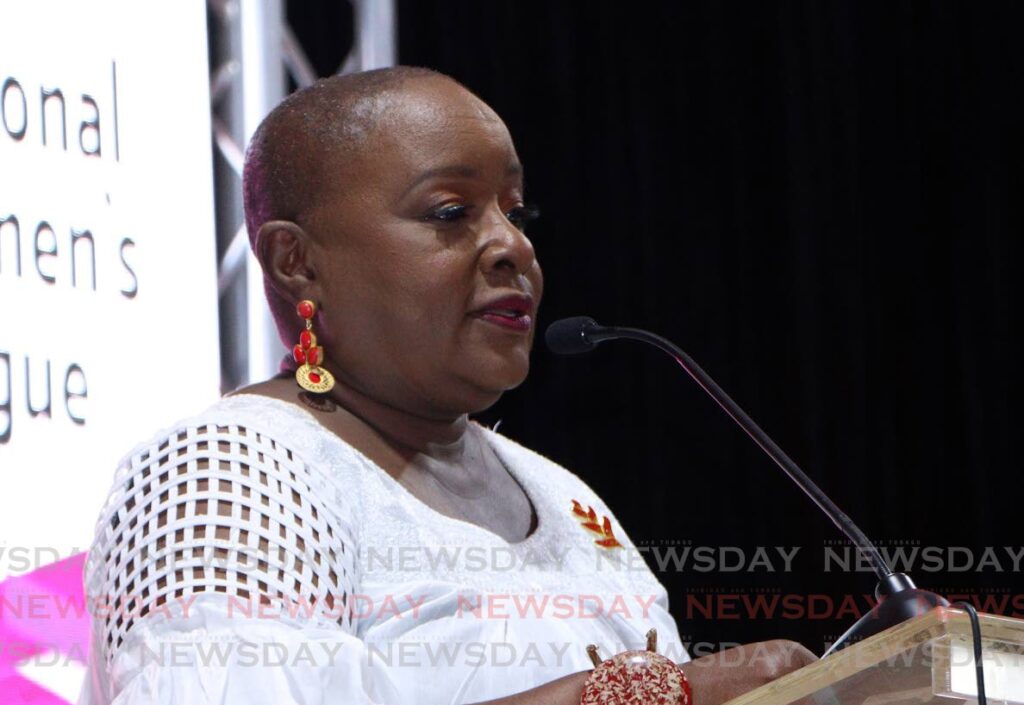AG 'clarifies misconceptions' on the CCJ, savings-law clause

IN response to a recent Newsday editorial titled Delete Savings-Law Clause, Attorney General and Minister of Legal Affairs Camille Robinson-Regis has "reaffirmed" the government's ongoing commitment to constitutional reform.
A media statement from the AG's Office on April 8 referred to the editorial published on April 6.
That editorial highlighted concerns from the Law Association of TT and Timothy Affonso, deputy dean of the faculty of law at UWI, St Augustine. These concerns were about the savings-law clause in the Constitution, which preserves colonial-era laws, and the editorial called for the removal of the savings-law clause.
On the argument on the savings clause, the AG recounted that in January 2024, then-prime minister Dr Keith Rowley announced Cabinet's approval of an advisory committee. The committee was tasked with developing terms of reference for a national consultation on constitutional reform.
"Citing growing public support, he underscored the need to review and modernise the 1976 Republican Constitution," the statement said.
"The committee was further tasked with recommending steps to convene a constitutional conference in June 2024, with careful consideration of TT's diversity, history, and development since Independence and Republican status."
She recalled that the committee's report on Constitutional Reform was delivered in July 2024, which included Section 6 of the Constitution.
This section contains the savings-law clause originally part of the 1962 Independence Constitution and retained in the 1976 Republican Constitution.
"Section 6, derived from Section 3 of the 1962 Constitution, preserves existing laws from being invalidated by the fundamental rights provisions set out in sections 4 and 5," the statement said.
"It is a general savings clause of indefinite duration and is entrenched under Section 54(2)(a), requiring a two-thirds majority in both Houses of Parliament for repeal. "
The statement added that since 1976, only NAR 33 and UNC 29 have achieved such a majority.
The statement added, "The advisory committee has proposed repealing section 6 to allow for a broader constitutional review of existing laws."
The statement cited the committee's report, which said that after 60 years of experience with colonial-era laws, there would seem to be no basis or justification for retaining the savings- or existing-law clause, and it should be removed as many have proposed.
"This Government views constitutional reform as a top priority while continuing to consider the evolving standards of decency that signify the progress of a maturing society," the statement said.
Robinson-Regis also sought to "correct the presumption" in the editorial that TT hosts and funds the Caribbean Court of Justice (CCJ) while continuing to rely on the Privy Council for final judgments.
She insisted that the government does not fund the operations of the CCJ.
She clarified that while CCJ's headquarters is in TT, its operations are financed through an independent trust fund, which ensures the institution's autonomy and financial independence from all member states, including TT.
On the continued use of the Privy Council as the country's final appellate court, the AG said that any move to abolish this relationship also requires a special majority in Parliament.
"To date, efforts to secure such a majority have not been successful due to a lack of support from the Opposition," she added.
The AG said, while serving as prime minister, Kamla Persad-Bissessar promised in Parliament in 2012 that the government would bring legislation to abolish appeals to the Privy Council in all criminal matters, allowing the CCJ full jurisdiction.
"However, in her current role as opposition leader, she now advocates for the matter to be decided by referendum, reflecting a change in stance on the issue," Robinson-Regis said.
"The government remains committed to open dialogue and constitutional reform and continues to support regional judicial sovereignty through the CCJ."
The editorial had highlighted that this country hosts and funds the CCJ but still relies on the Privy Council for final judgments, underscoring a lack of political will to address outdated laws like the savings-law clause.
It added that removing the savings-law alone is insufficient, as other colonial-era laws also need reform.
The editorial labelled the failure of successive governments to address these issues as a legal embarrassment, emphasising that it is time to tackle this longstanding problem.

Comments
"AG ‘clarifies misconceptions’ on the CCJ, savings-law clause"